How Baby Elephants Suckle From Their Mothers
The Sweetest Little Suckles Between Baby Elephant, Phabeni & Lundi
Little orphan bull elephant, Phabeni has shown great passion for suckling at the older elephants he has met, both cow Lundi and bull Jabulani, interestingly. Jabulani is so much bigger than Phabeni that the calf actually climbs up Jabulani’s legs, resting his front feet on one of Jabulani’s great tree-trunk legs so that he can get to the teat. Lundi allowed Phabeni this closeness too, from their very first meeting, putting her leg forward to open up the teat to Phabeni. During their introduction, Phabeni constantly followed Lundi around and took every opportunity to reach up to her to suckle. We noted that he had to reach quite high and that it was likely that his birth mother was shorter than Lundi and easier to suckle from.
Usually when you see offspring drinking from their mammalian mothers in the animal kingdom, such as with cows or antelope, you will notice suckling taking place from mammary glands located closer to the groin and posterior part of the mother. When it comes to elephants, though, their mammaries are situated in the front, anteriorly by the chest, between the two front legs. In this way, elephants are much more like humans, with two front-positioned glands adapted to feed one or two offspring at a time. This position enables the mother to better reach the calf with her trunk, to watch over and protect it, as well as bond through touch.
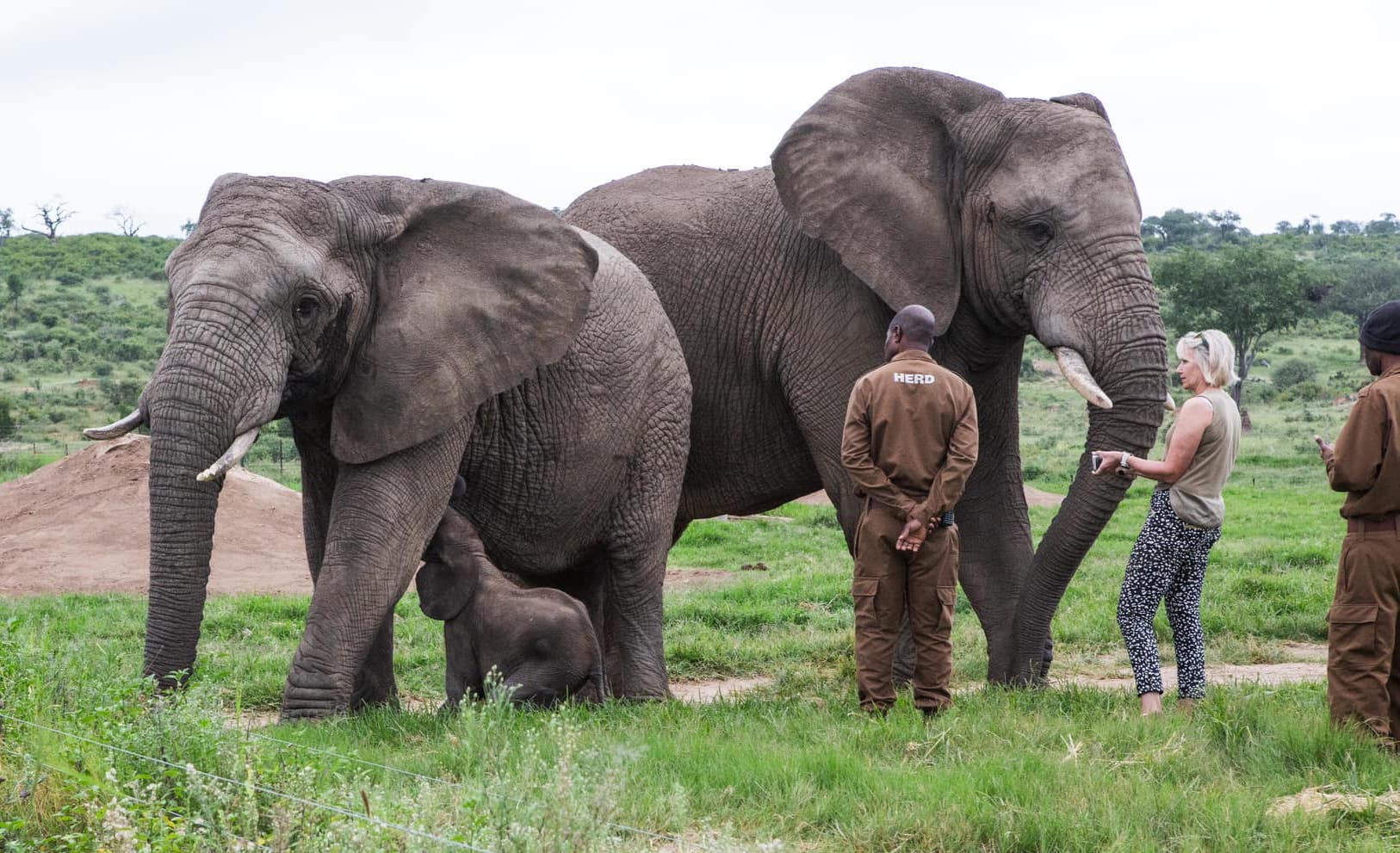
Elephant calves suckle using their mouths. It is the sweetest sight and one that we have been focusing on a lot while filming Lundi and Phabeni together. While the elephants in our rescued herd are on contraception as semi-habituated animals, they do not lactate and so this act of suckling is simply out of instinct. It no doubt provides great comfort and bonding to both elephants involved. It is incredibly precious to witness – our team could not hold back the tears watching Lundi allow Phabeni to practice this very intimate act.
Elephants are different to humans in the length of gestation, with a considerably longer period – the longest of any mammal at 18–22 months. The newborn comes into the world at around one metre in height, weighing only 100 kilograms. It must drink from its mother right away, encouraging it to quickly get up onto all four feet to reach its mother’s teats.
It is presumed that by consuming colostrum and milk from their mothers, calves acquire maternal immune protection after birth, giving them an important boost from the get-go. Phabeni would have been lucky enough to gain this benefit since he was orphaned at around four months of age.
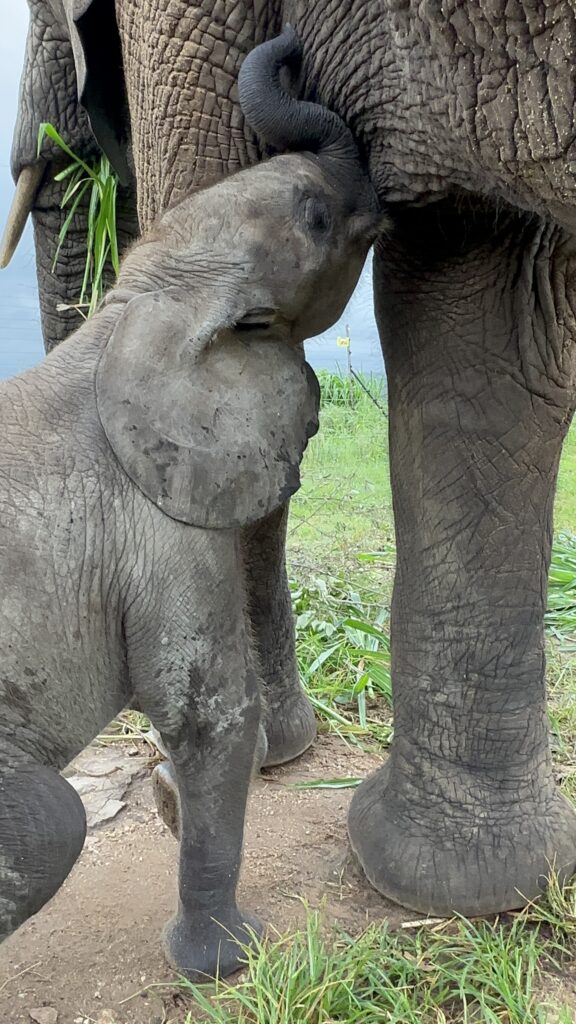

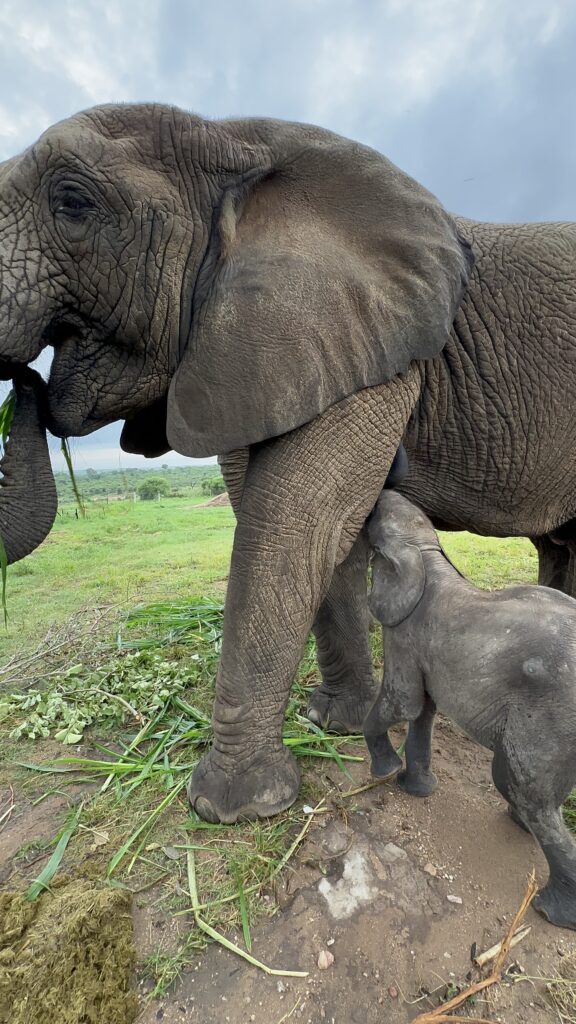
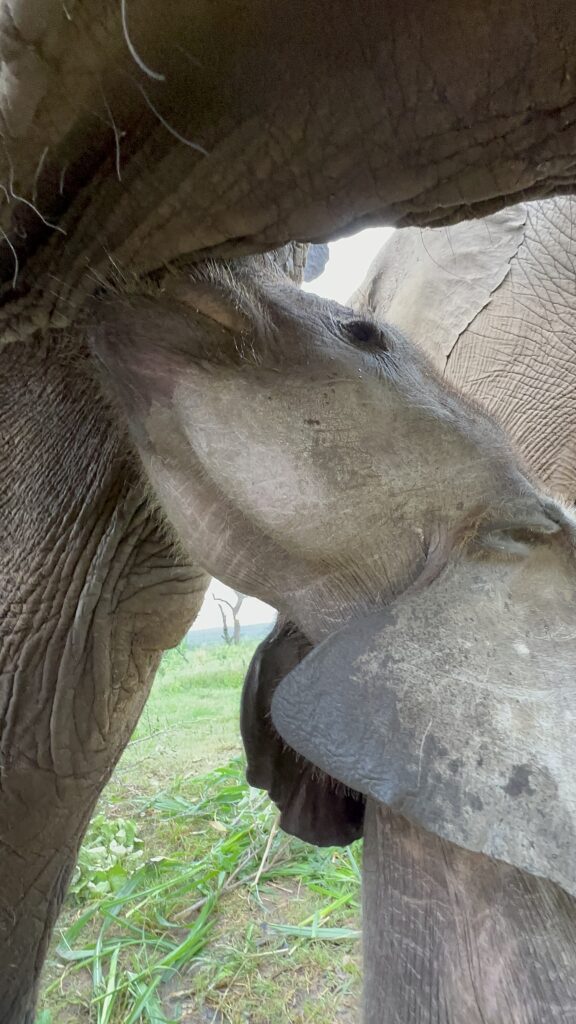
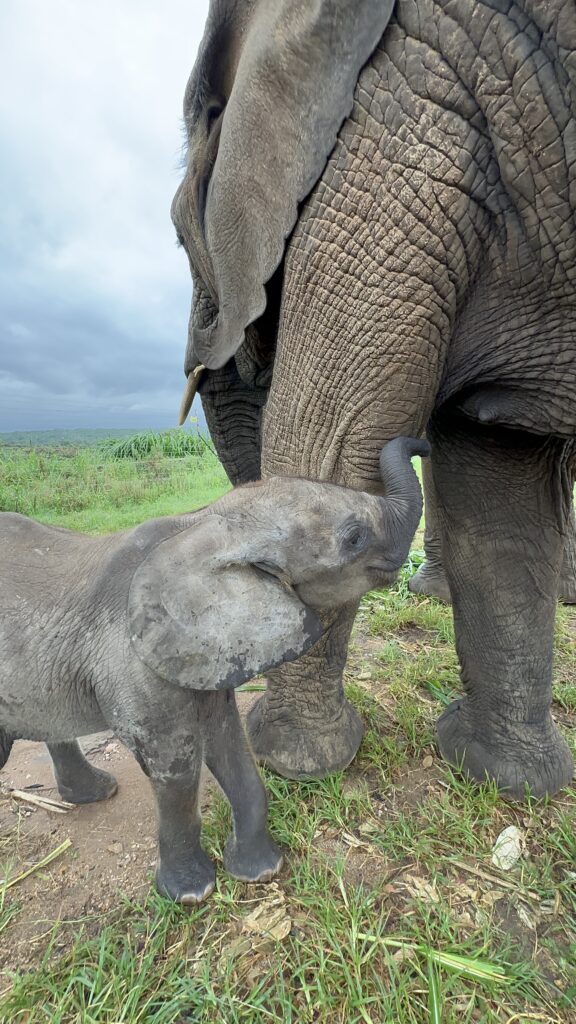
Like Khanyisa, Phabeni will need milk bottles until the age of around 4 – 5 years. The weaning process is always long and for us at HERD, it depends on each calf’s unique needs and development. In the wild, a mother might stop feeding her calf once she can no longer tolerate her offspring poking her with tiny growing tusks. Fortunately for Khanyisa, she could benefit from milk in her diet even after those little tusks emerged. She has been weaned from her night bottles, and is receiving reduced amounts during the day, leading her toward the end of the weaning process possibly around the end of the year.
Watch these sweet moments of Phabeni noisily suckling on his potential new mother figure, dearest Lundi:
SOURCE: You can read more about the Mammary Gland of the Elephant here >

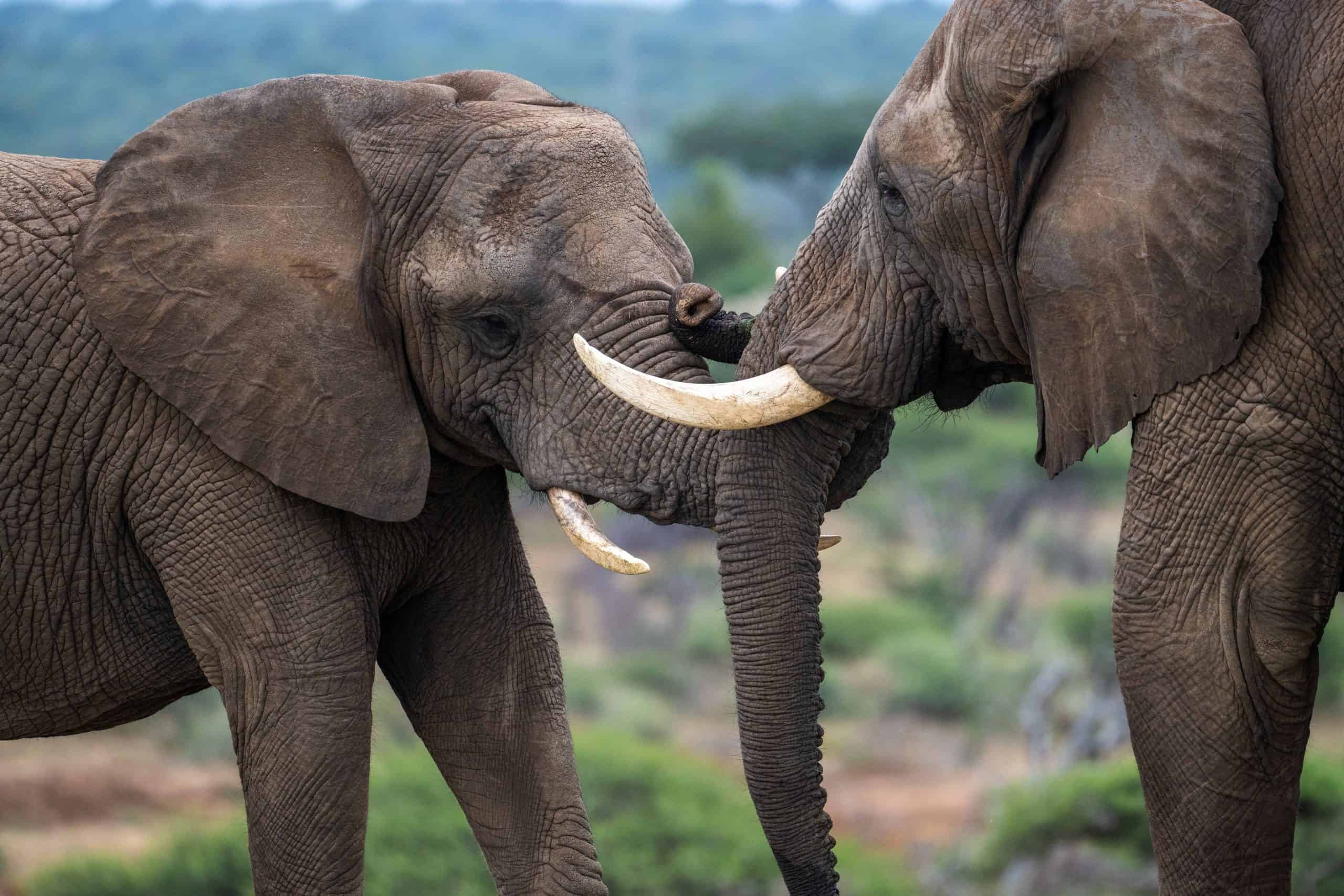
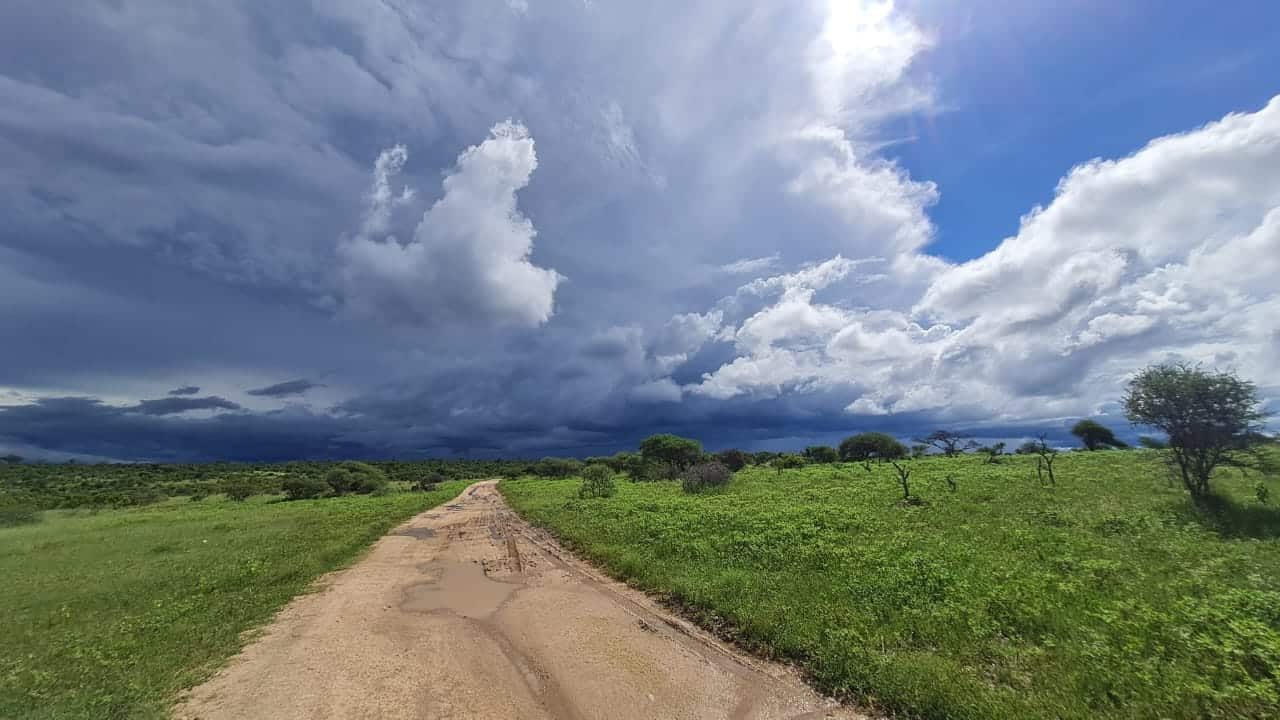
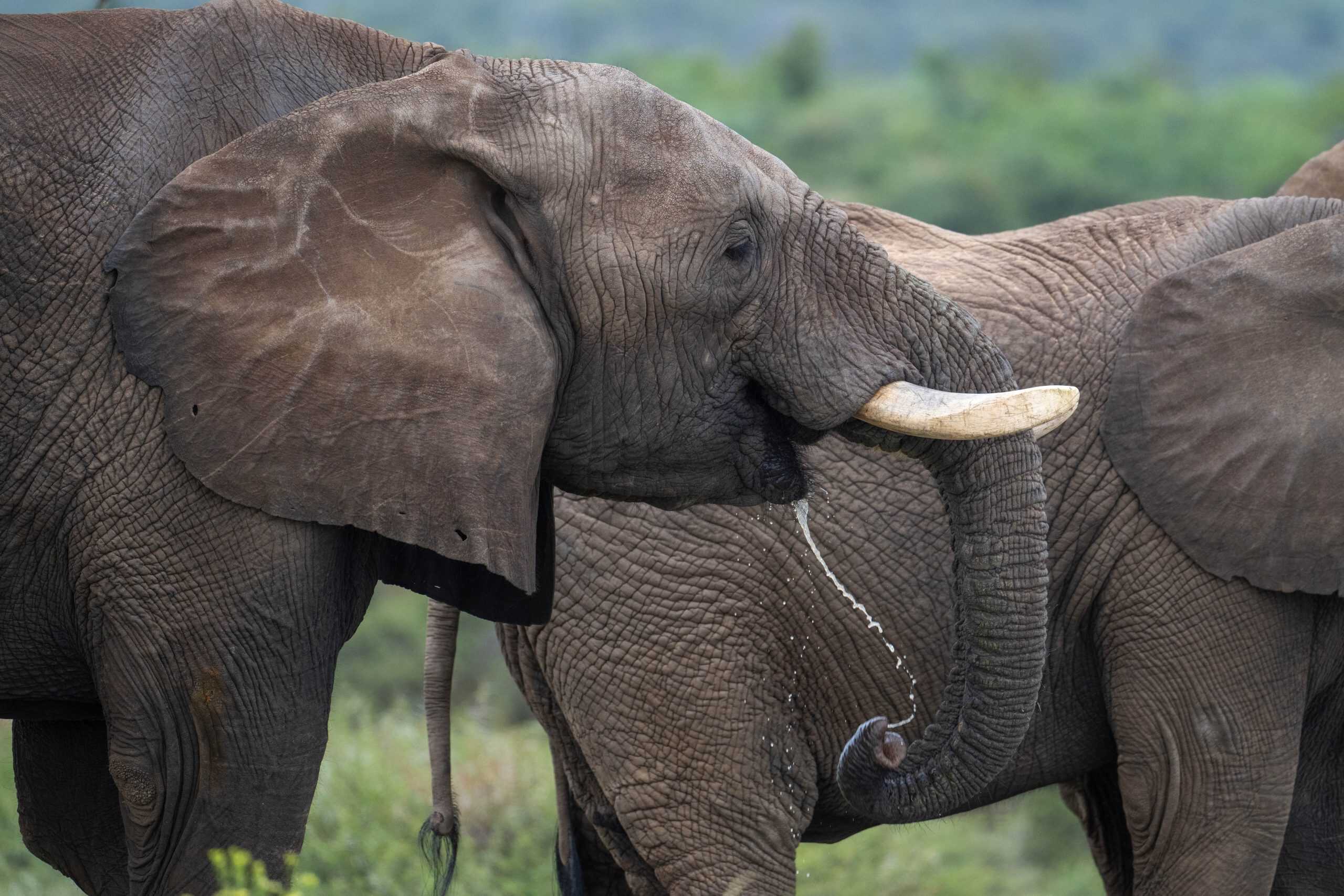

Angela kirby
To actually hear the baby suckling and nudging her big mommy is incredible. There is no way that I could have seen/ heard the Mother Nature experience without the posting of this/endearing photo. Your time and talents are amazing, Adine. Bless you. Angela Kirby
Becky Banta
Thank you for sharing this with us.....touches my heart! All your hard, consistent loving care is so touching. And oh. how the elephants benefit. And to us who love them......to see their up close activities. Feels like I could reach out & pet. What a wonder! ????